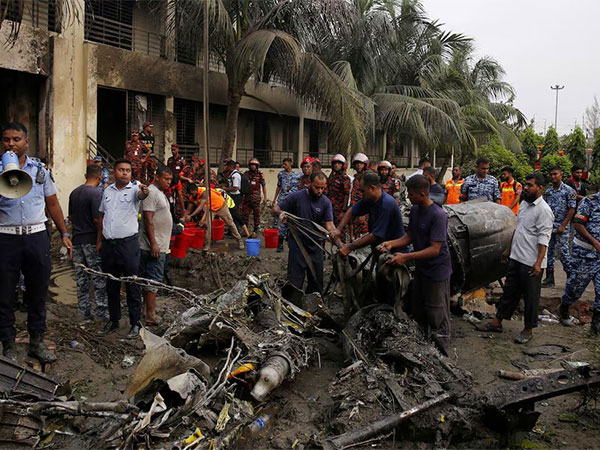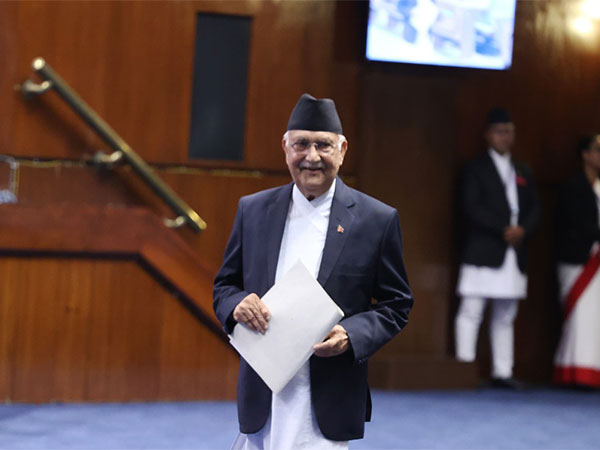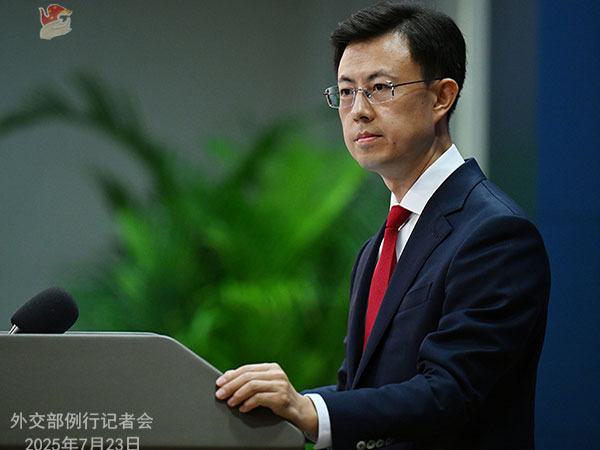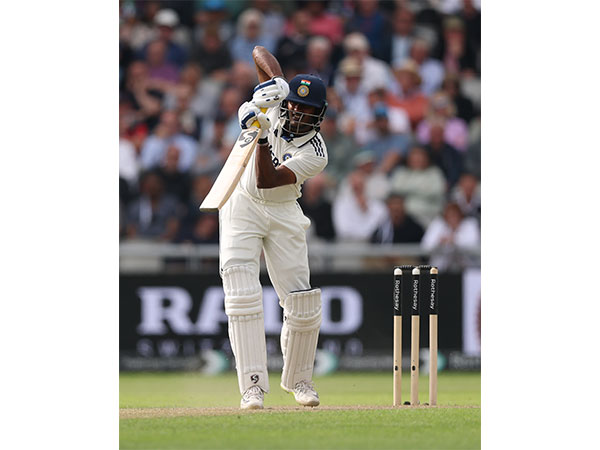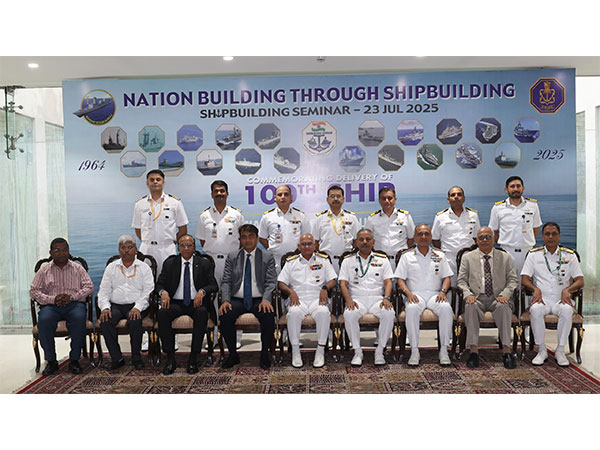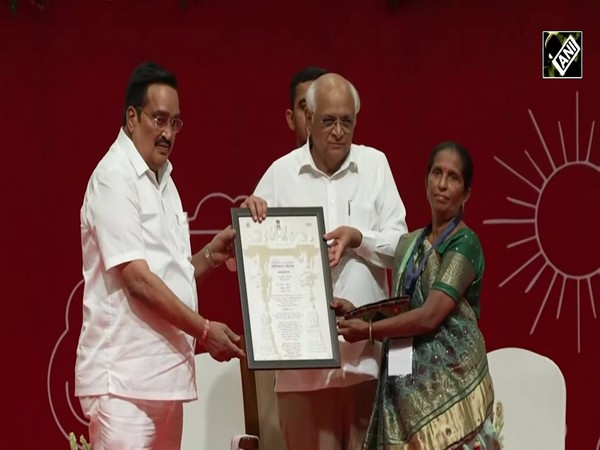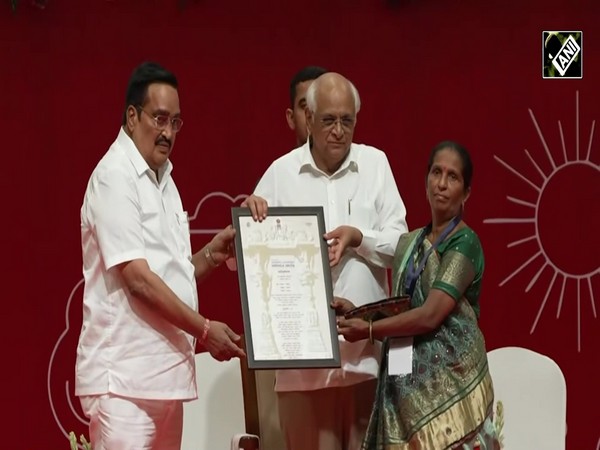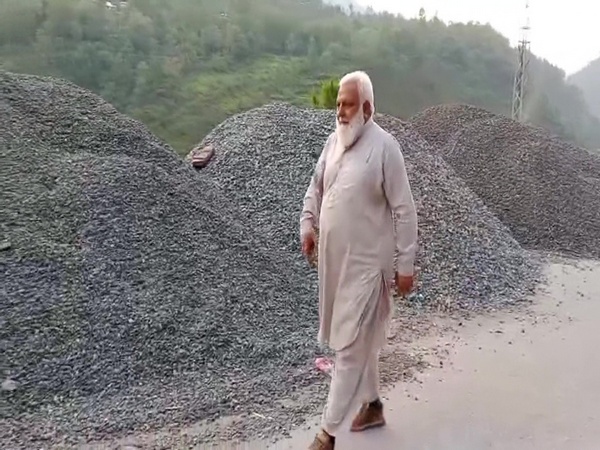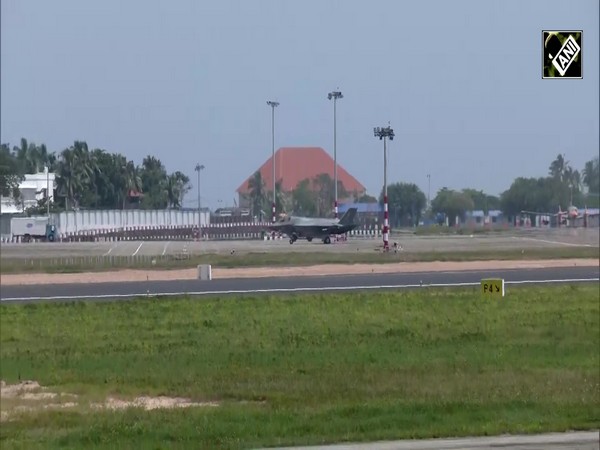US looking to strengthen alliance with EU to counter China's increasing aggressiveness
Mar 24, 2021

Brussels [Belgium], March 24 : After a fiery exchange of sanctions between China and several Western countries, US Secretary of State Antony Blinken used his first official European engagement on Tuesday to talk about America's renewed embrace of the transatlantic alliance.
The top US diplomat is currently in Belgium to meet foreign ministers from North Atlantic Treaty Organization (NATO) countries, ahead of further talks with European Union (EU) on Wednesday, reported South China Morning Post (SCMP).
Stressing that NATO should be focused on challenges posed by China to the rules-based international order, Blinken said: "Whether it is tackling some of the new challenges like climate or the cyber realm, the rise of autocratic states and the challenges that they pose, we have a profound interest in doing it together, doing it collectively, relying on collective security, and that's what NATO is all about."
While issues closer to European borders, such as Russian aggression, are set to dominate the EU talks, China is unlikely to be far from concerns, wrote Finbarr Bermingham for SCMP.
After the meeting, NATO Secretary-General Jens Stoltenberg said that the foreign ministers sought to build new partnerships with Asia-Pacific nations including Australia, Japan, New Zealand and South Korea to address the consequences of the rise of China.
This comes after the United Kingdom, Canada, EU and the US teamed up to slap sanctions on Chinese officials over human rights violations in Xinjiang, a sign that the Biden administration plans to use alliances to counter an increasingly assertive China.
In a statement accompanying the US sanctions, Blinken said that the US "is committed to playing a strong leadership role in global efforts to combat serious human rights abuse, through the Global Magnitsky sanctions programme and similar efforts", reported SCMP.
China also retaliated swiftly to the European sanctions, banning 10 European individuals and four entities and associated individuals from entering the country, including Macau and Hong Kong.
EU foreign policy chief Josep Borrell said that the Chinese response was unacceptable. "There will be no change in the EU's determination to defend human rights and to respond to serious violations and abuses, irrespective of where they are committed," he said.
European Parliament president David Sassoli said that Beijing's embargoes on five members of the parliament as well as on its human rights subcommittee "will have consequences".
"Belgium strongly rejects the announcement of the Chinese authorities to sanction EU entities and especially EU MPs - including one Belgian MP - in response to measures adopted in defence of human rights, a core tenet of EU policies. We will follow this up with our EU counterparts," said Belgian Foreign Minister Sophie Wilmes.
In Beijing on Tuesday, foreign ministry spokeswoman Hua Chunying accused the EU of hypocrisy, reported SCMP.
"The EU cannot talk about cooperation on one hand and impose sanctions to harm China's rights and benefits on another. This is unreasonable and would lead to nowhere," she said.
Last week, Stoltenberg told the European Parliament that if the West intended to deal with a "more aggressive" and "threatening" China, it needed to quickly repair an alliance that had decayed under former US President Donald Trump's watch.
"If you're concerned about the rise of China, the military and economic strength of China, that makes it even more important that we stand together, Europe and North America in Nato," Stoltenberg said.
Since 2017, a massive political 'reeducation' campaign against Uyghurs and other groups has been carried out by the government in Xinjiang, with scholars estimating over a million people detained in camps, some transferred to prison and others pressured to work in factories, Washington Post reported.
Beijing's clampdown on the flow of information has also made it challenging for Xinjiang researchers to prove systemic implementation and intent for the most explosive allegations, including torture and rape in the camps.
